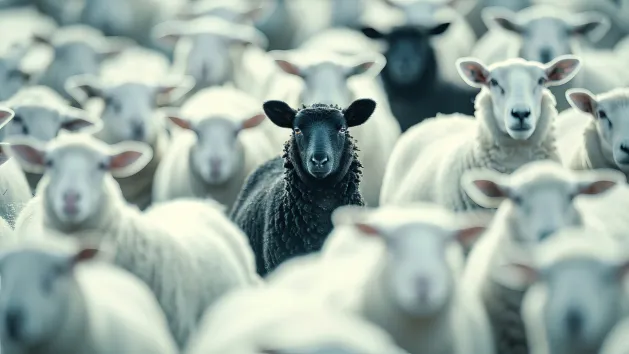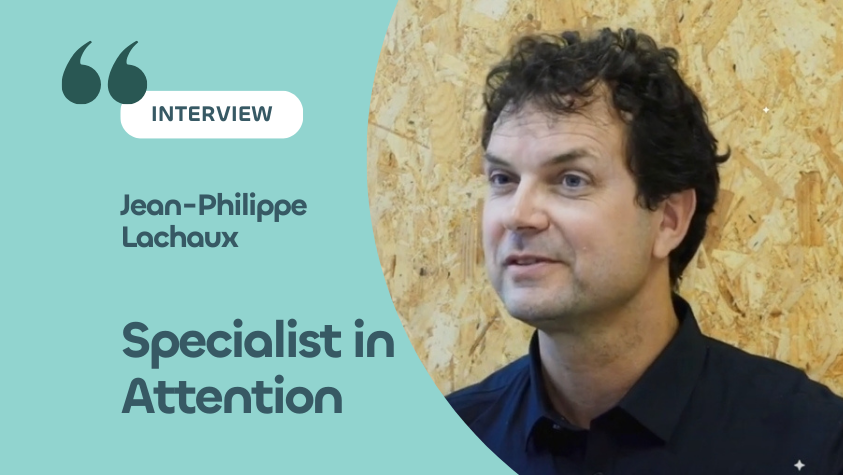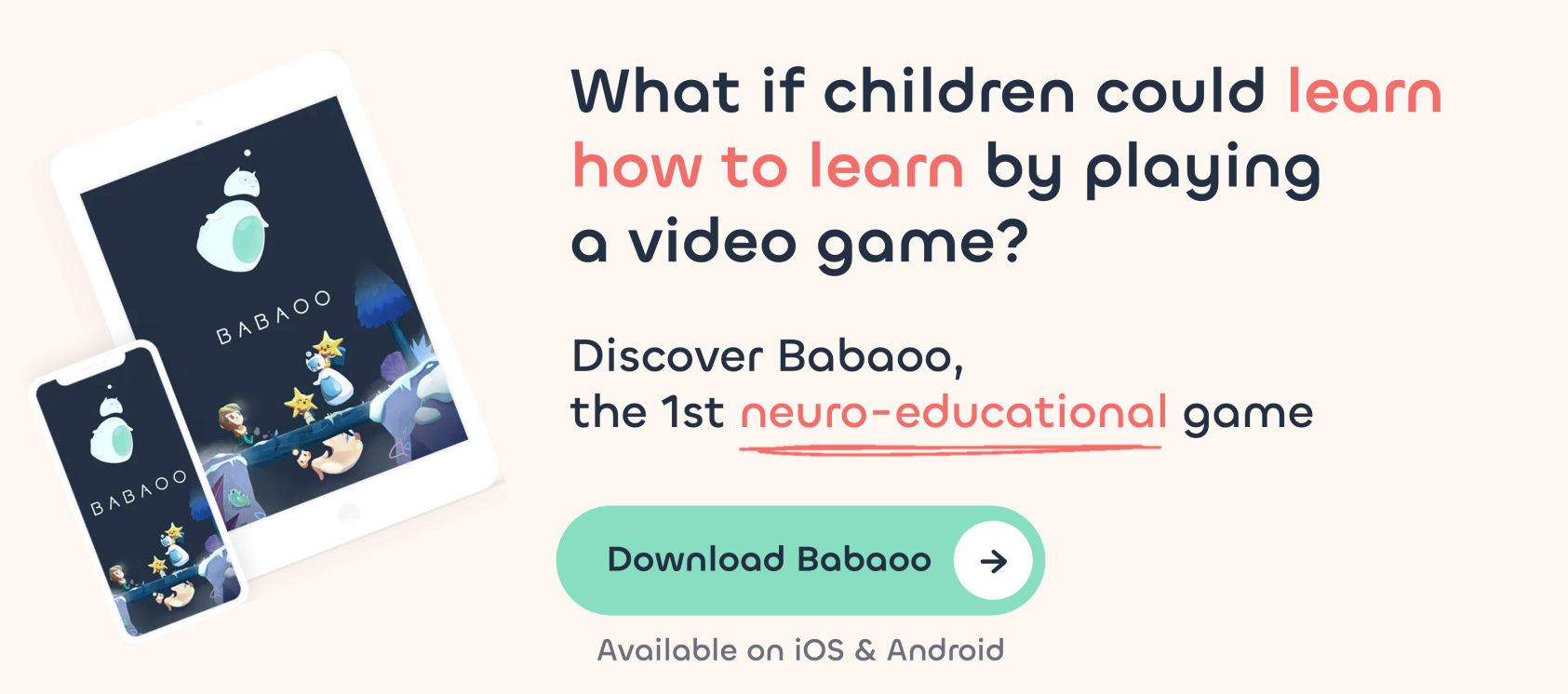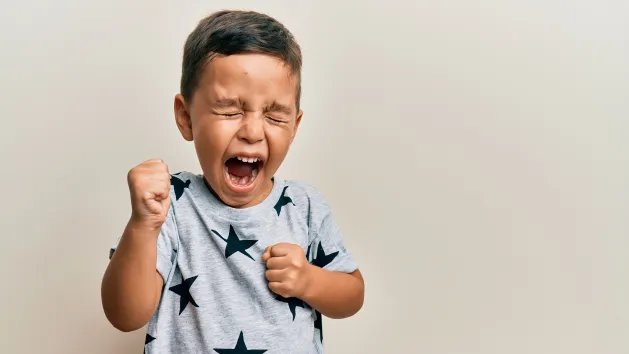
All you need to know about Attention: interview with Jean-Philippe Lachaux

Video interview with Jean-Philippe Lachaux
⚙️English subtitles are available
And below: the translation
Attention in a few words is…?
Attention means favouring one perception at a given moment, over all that we can perceive of the world and of ourselves. We are going to choose one, which will take precedence.
Attention and Concentration are the same thing. True or false?
False, Concentration also implies doing something in relation to its object of Attention, in other words, having a task.
Attention VS Concentration
The two are inseparable! You can’t do much without being focus, but you can’t focus without being attentive. I’ll take the package!
Is concentrating innate or something you learn?
It is learned. When we’re born, we don’t receive a little manual that tells us how to concentrate, and that’s precisely where the problem lies. We assume that everyone has already learned it somewhere, but that’s not the case. It should be learned but in reality it isn’t.
Doing two things at the same time, dare?
Dare! For example at the moment I’m talking to you, I’m also tipping myself over in my chair, so it’s quite possible.
So, can you answer the next question by tying your shoelaces?
Challenge Accepted!
Saying “Be careful” to your child is like ?
(Busy carefully tying his shoelaces! NDLR).
Saying “Pay attention to your child” is like asking them to “pass it on to you”. In other words, to pass “what” on to you? It’s the same when you ask a child to pay attention: you have to specify “what” they need to pay attention to.
15 seconds to explain what happens in my brain when I pay attention?
When you’re paying attention, certain neurons are in charge of what you need to pay attention to. They will then be more active to the detriment of others and will be more connected with other higher-level brain regions, in order to pass the information on to them.
“Staying focused is like walking on a beam without falling” Uh… can you explain?
Throughout a task to be carried out, forces will come to distract you. You’ll then have to avoid letting yourself be distracted and react to these forces in order to restabilise yourself on your task. It’s exactly like a beam after all.
3 everyday activities to train children to stay focused?
You can’t really train your Attention. On the other hand, you can train yourself to stabilise it. In that case, I’d say reading, learning to do a skateboard trick and baking a cake.
A tip to help children concentrate?
I don’t have one, just as I don’t have a tip for learning to play the violin or basketball. It’s not a question of tricks, it’s a real learning process.
“Learning” or “learning how to learn” ?
Learning how to learn! Once I know how to learn how to learn, I know how to learn!
Learning and video games: Match or no match?
Match because we’re going to learn how to play a video game. More generally, if it’s more a question of asking whether you can use a video game to learn how to learn, I would answer that it depends on the video game. In fact, that’s the great hope we have with Babaoo, that it can work!
Nice, dynamic people, a great idea and a project that’s going to work!
Babaoo is to Attention what Minecraft is to Lego!
Why did you take part in the Babaoo project?
For the impact and the possibility of spreading simple messages to a huge number of children, which isn’t too possible other than through a video game.
Being a neuroscience researcher is a bit like… ?
It’s a bit like having fun every day! It’s being part of an incredible human adventure that we’re the first generation to be able to do. It’s also keeping up to date with all the latest discoveries, which is great!
Who seeks, always finds?
Not always no, well yes but sometimes you find that it’s not the right direction to go in, that’s part of research. Failing is part of the search, it’s normal, but so is succeeding!
Black belt, I don’t know… It’s not up to me to assess that, but it’s obvious that I waited a long time before giving lectures on Attention, to have a stabilised Attention to all the same embody a minimum of what I’m expressing.
Among top sportsmen and women, who are the great champions of Attention?
I’m very into tennis, so I’m going to look there! Nadal is really the example we always cite because he has an enormous capacity for concentration in matches but also in training. We could also mention Djokovic, they really are role models that we can have in mind when it comes to their quality of concentration.
A recommended read?
I’ve got mixed feelings, I’m thinking that if it’s one of my books it’s just rubbish to say that! Mmmhh… The one I’m going to write! All joking aside, there are tons of great books out there. I think it’s interesting to look back at Zen writings, like Taisen Deshimaru’s “The Practice of Concentration” for example, it’s great reading advice.
If you’re an artist, your right brain is more dominant. True or false?
False, even more so if you’re right-handed because the right hand is controlled more by the left brain. There isn’t such a marked lateralization of cognitive functions, overall the brain doesn’t work in halves, it’s really the two hemispheres that work together.
You may also be interested in these articles



